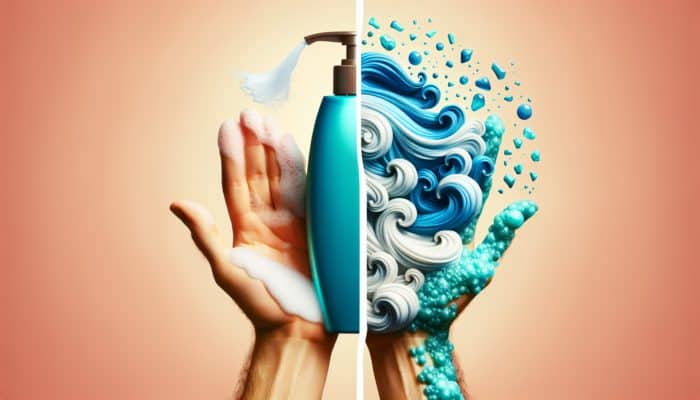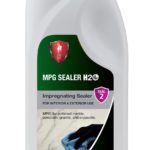Unlock the Advantages of Selecting Sulfate-Free Shampoos for Superior Hair Care
Understanding Sulfates: Key Insights for Informed Choices

Sulfates are powerful surfactants frequently found in personal care products, especially in shampoos. Their primary function is to generate a thick, foamy lather that many consumers equate with effective cleaning and freshness. However, compounds such as sodium lauryl sulfate (SLS) and ammonium lauryl sulfate can be excessively harsh on both hair and scalp. This aggressiveness often strips hair of its necessary natural oils, leading to dryness and potential irritation. With growing awareness of the negative effects linked to sulfates, many consumers are opting for gentler alternatives, resulting in a significant surge in demand for sulfate-free shampoos. These products provide a milder cleansing solution that appeals to those seeking effective cleaning without the damaging side effects typically associated with conventional sulfate-laden shampoos.
Explore the Remarkable Advantages of Sulfate-Free Shampoos for Enhanced Hair Health
Transitioning to sulfate-free shampoos can provide substantial benefits, particularly for individuals with sensitive scalps or colour-treated hair. One notable advantage is the preservation of natural oils crucial for maintaining healthy hair. Traditional shampoos frequently strip these oils, resulting in dry, brittle hair and irritated scalps. Conversely, sulfate-free formulations assist in maintaining moisture balance, leading to softer, shinier hair with improved vitality. Furthermore, these gentle cleansers significantly reduce irritation and inflammation, making them especially suitable for individuals prone to scalp issues or dermatitis. Beyond their soothing properties, sulfate-free shampoos also help to prolong the vibrancy of hair colour. For those investing in professional colour treatments, the milder nature of these shampoos protects vivid hues while minimising fading, thus extending the time between touch-ups and preserving a fresh look.
In addition, numerous sulfate-free shampoos incorporate a variety of nourishing ingredients that further promote hair health. By effectively addressing both cleansing and conditioning requirements, they contribute to a comprehensive hair care routine that nurtures and maintains the beauty of your locks, enhancing both aesthetic appeal and structural integrity.
Essential Ingredients to Seek Out in Sulfate-Free Shampoos
Sulfate-free shampoos utilise gentler surfactants that provide effective cleansing without the harshness linked to traditional sulfates. Popular components include coco-glucoside and decyl glucoside, sourced from natural origins such as coconuts and corn. Although these mild surfactants may produce a lighter lather, they continue to cleanse effectively without depleting hair of its essential moisture. Another noteworthy ingredient in these formulations is sodium cocoyl isethionate, derived from coconut fatty acids, known for its excellent skin compatibility. This ingredient not only cleanses efficiently but also contributes a creamy texture that enhances the shampoo's overall effectiveness. By prioritising natural, plant-based ingredients, sulfate-free shampoos cater to the growing consumer demand for environmentally friendly and sustainably sourced products, aligning with the increasing awareness of ecological impacts.
Moreover, the trend towards utilising natural ingredients reflects a broader movement within personal care, as consumers become increasingly conscious of what they apply to their bodies and the environmental consequences of their choices. This shift has fostered innovation in products combining effective cleansing with nourishing benefits, catering to a wide range of hair types and concerns.
Expert Guidance on Identifying Sulfate-Free Shampoos in Retail Environments

Recognising sulfate-free shampoos is crucial for consumers who seek milder hair care solutions. A quick inspection of the product label can reveal vital information regarding its formulation. Look for explicit indications of sulfate absence, such as sodium lauryl sulfate and ammonium lauryl sulfate. Many brands prominently showcase their sulfate-free status on the packaging, often accompanied by certifications or claims that reinforce their dedication to gentler formulations. Furthermore, familiarising yourself with the ingredient list is essential; sulfate-free shampoos typically feature a variety of botanical extracts or nourishing oils, further highlighting their benefits. Understanding these labels empowers consumers to make informed choices that align with their unique hair care needs, ultimately leading to healthier, more vibrant hair and a more satisfying shopping experience.
Additionally, identifying reputable brands that prioritise transparency in ingredient sourcing can enhance your shopping experience, ensuring you select products that resonate with your personal values and requirements.
Selecting the Ideal Sulfate-Free Shampoo Customised for Your Hair Type
Assessing Your Unique Hair Characteristics for Optimal Shampoo Selection
Choosing the appropriate sulfate-free shampoo begins with a comprehensive understanding of your hair type, which can vary in texture and condition, such as oily, dry, curly, or colour-treated. For those with oily hair, it is vital to seek shampoos specifically formulated to balance excess oil while remaining gentle. Look for products that contain tea tree oil or citrus extracts, which can help regulate oil production without resorting to harsh chemicals. Conversely, individuals with dry or damaged hair will benefit from richer formulations infused with moisturising ingredients such as argan oil or shea butter. These components not only hydrate the hair but also provide essential nutrients that can restore its vitality. People with naturally curly hair often require additional moisture to maintain curl definition and minimise frizz. Therefore, selecting sulfate-free shampoos rich in hydrating properties can significantly enhance curl health and reduce breakage, ensuring your natural texture is beautifully defined.
For individuals with colour-treated hair, it’s crucial to select products specifically designed for this type. These shampoos often contain UV filters and antioxidants that not only protect hair from environmental damage but also help maintain vibrancy. Understanding your specific hair characteristics is essential for selecting a sulfate-free shampoo that caters to your needs, ultimately leading to healthier, more vibrant, and attractive hair.
Deciphering Product Labels for Intelligent Hair Care Choices

Navigating the extensive selection of hair care products necessitates a discerning eye for detail when examining product labels. The label of a sulfate-free shampoo serves as a valuable guide in your quest for the ideal product. Seek out explicit terms like “sulfate-free” prominently displayed on the packaging. However, don’t confine your focus to this; examining the ingredient list is equally vital. Familiarising yourself with common surfactants used in sulfate-free shampoos can help identify suitable options. Ingredients such as coco-glucoside or decyl glucoside suggest gentler formulations. Additionally, checking for certifications such as organic or cruelty-free can help align your purchase with your personal values. It’s important to remember that not all products are created equal, even if they claim to be sulfate-free. Some may still contain harsh chemicals that could undermine the advantages of a sulfate-free approach. Therefore, scrutinising labels and understanding the science behind the ingredients can lead to informed choices that ultimately benefit your hair and scalp health.
Tackling Specific Hair Concerns When Selecting Shampoos
When choosing a sulfate-free shampoo, it’s essential to consider any particular hair concerns you may have. For instance, individuals suffering from dandruff or scalp psoriasis should opt for shampoos containing targeted ingredients like salicylic acid or tea tree oil, known for their soothing properties. These components can alleviate flakiness and irritation while promoting a healthy and comfortable scalp. Thinning hair is another common concern, especially as individuals age. Formulations enriched with biotin, keratin, or niacin can provide strengthening benefits that enhance hair health and thickness. For those residing in humid climates or with naturally curly hair, managing frizz is crucial. Look for shampoos infused with smoothing oils or silicones that create a protective barrier against moisture, thereby reducing frizz and enhancing manageability. By considering your specific hair concerns, you can refine your search for a sulfate-free shampoo that effectively addresses your unique needs, ensuring optimal results and satisfaction.
Assessing Brand Credibility for Quality Assurance
The brand behind your selected sulfate-free shampoo can significantly influence your overall experience. Researching the brand’s history, values, and customer reputation is essential prior to making a purchase. Brands that emphasise quality and transparency typically provide clearer information regarding their product formulations and sourcing practices. Customer reviews can offer invaluable insights into the shampoo's effectiveness. Seek out testimonials and feedback from users with similar hair types and concerns, as this can provide realistic expectations regarding the product's advantages and potential drawbacks. Moreover, consider the brand’s commitment to sustainability and ethical practices. Many consumers today prefer brands that align with their values, whether that involves cruelty-free testing, eco-friendly packaging, or sustainably sourced ingredients. Evaluating a brand's reputation and values can guide you toward a sulfate-free shampoo that not only meets your hair care needs but also resonates with your ethical beliefs.
Balancing Cost and Quality When Purchasing Hair Care Products
Price is often a significant consideration when making purchasing decisions, particularly regarding personal care products. However, it’s crucial to ensure that the price reflects the value of the sulfate-free shampoo you’re contemplating. While premium brands typically command a higher price, they may offer superior formulations that justify the cost through more effective results and higher-quality ingredients. It’s also essential to consider the long-term value; assess the longevity of the product and the amount required per wash. Some sulfate-free shampoos provide greater value due to their concentrated formulas, which necessitate less product per use, thereby lasting longer. Comparing prices across various brands can yield surprising insights. While well-known brands may dominate the market, smaller or niche brands frequently offer high-quality sulfate-free shampoos at more competitive prices. Exploring a range of options can lead you to discover effective products that fit your budget while meeting your hair care requirements.
The Positive Effects of Sulfate-Free Shampoos on Hair Health
The Essential Role of Moisture Retention in Achieving Healthy Hair
Preserving adequate moisture is crucial for achieving healthy hair, and sulfate-free shampoos play a pivotal role in this aspect. Unlike traditional shampoos that can strip hair of its natural oils, sulfate-free formulas are specifically designed to cleanse without depleting the hair and scalp of essential moisture. This moisture retention is vital for preventing dryness and brittleness, ensuring that hair remains supple and manageable. The gentle cleansing action of sulfate-free shampoos allows the scalp to maintain its natural oil production, avoiding the cycle of over-washing that can exacerbate dryness and lead to an unhealthy scalp environment. By preserving moisture, these shampoos contribute to a smoother texture, reduced frizz, and overall enhanced hair health. Moreover, when hair retains moisture, it becomes more resilient against environmental factors such as heat styling or UV exposure. This resilience not only improves the appearance of hair but also reduces the likelihood of damage, promoting long-term health and vitality. The advantages of moisture retention extend beyond aesthetics, contributing to a nourished scalp and hair that feels as good as it looks.
Protecting Hair Colour with Sulfate-Free Formulations
For those who invest in hair colour, maintaining that vibrant hue is paramount. Sulfate-free shampoos are recognised for being gentler on colour-treated hair, making them a preferred choice among those who frequently dye their hair. The milder cleansing agents in these formulations help prevent premature fading of colour, making them an ideal companion for maintaining salon-fresh results. The protective qualities of sulfate-free shampoos further enhance the longevity of hair colour by minimising damage. When hair cuticles remain intact, colour adheres more effectively, resulting in a more vivid and lasting appearance. Additionally, many sulfate-free shampoos are infused with UV filters and antioxidants that shield colour-treated hair from environmental aggressors, further extending colour life. Choosing a sulfate-free shampoo specifically designed for coloured hair not only preserves vibrancy but also enhances shine and overall health. This combination of benefits allows individuals to enjoy their colour without the stress of frequent touch-ups or fading, making the transition to sulfate-free formulations a wise and rewarding decision.
Improving Scalp Health with Gentle Shampoo Formulations
A healthy scalp serves as the foundation for thriving hair, and sulfate-free shampoos support scalp health in numerous ways. By reducing irritation and inflammation, these shampoos foster an environment conducive to hair growth and overall well-being. Traditional shampoos can exacerbate scalp issues, leading to discomfort, flakes, and even hair loss over time. The milder cleansing agents in sulfate-free formulations help maintain the scalp's natural barrier, preventing dryness and irritation. This gentle approach can be particularly beneficial for individuals with sensitive skin or those prone to conditions like eczema or psoriasis. Maintaining a healthy scalp not only alleviates discomfort but also promotes optimal hair growth by ensuring hair follicles are not compromised by harsh chemicals. Moreover, many sulfate-free shampoos are enriched with soothing botanicals such as aloe vera or chamomile, which further enhance their calming effects on the scalp. By prioritising scalp health through sulfate-free shampoos, individuals can enjoy not only healthier hair but also a more comfortable and nourished scalp.
Navigating the Shift to Sulfate-Free Shampoos
Getting Ready for the Transition Phase: What to Anticipate
Transitioning to sulfate-free shampoos can be an enlightening journey, but it often involves an adjustment period. Initially, users may notice a difference in lather and texture compared to their previous products. Sulfate-free shampoos tend to produce less foam, which can lead to the misconception that they are not cleansing effectively. This experience can be surprising, particularly for those accustomed to the rich lather of traditional shampoos. Additionally, during the transition, the scalp may exhibit temporary oiliness as it adjusts to the absence of sulfates. This response is natural as the scalp recalibrates its oil production. Users may initially perceive their hair as greasier, but this sensation typically subsides as the scalp adapts to the new routine. Patience is crucial during this period, as embracing the benefits of sulfate-free shampoos often requires time and consistency. The transition phase can also provide an opportunity to assess overall hair and scalp health. Individuals may discover that their hair feels softer and more manageable as natural oils are preserved, leading to improved texture and appearance. Embracing the transition to sulfate-free shampoos ultimately establishes the foundation for a healthier hair care regimen that nurtures your locks.
Effective Approaches for a Seamless Transition to Sulfate-Free Products
Making the switch to sulfate-free shampoos can be smooth with the right strategy. Gradually introducing the new shampoo is highly recommended; rather than completely replacing your current shampoo, consider alternating between traditional and sulfate-free options. This method allows your scalp to adjust without overwhelming it, facilitating a smoother transition. Incorporating occasional clarifying shampoos can also help manage product buildup during the transition. These shampoos are designed to thoroughly remove residue without the harshness of sulfates, ensuring your hair remains clean and healthy. Using clarifying shampoos sparingly can help maintain a balanced scalp environment as you adapt to sulfate-free formulations. Additionally, pay attention to how your hair responds during this adjustment period. If you notice excessive oiliness or discomfort, consider modifying the frequency of use or selecting a different sulfate-free formula. Listening to your hair's needs will empower you to make informed choices that enhance your transition experience and promote optimal hair health.
Addressing Common Challenges During the Transition
While transitioning to sulfate-free shampoos can offer numerous benefits, it may also present challenges. One common obstacle is managing product buildup, particularly if previous shampoos contained heavy silicones or other residues. To counteract this, adopting a clarifying shampoo periodically can help remove buildup and restore balance to your hair and scalp. Another challenge may involve dealing with limp or flat hair as the scalp adjusts to the new shampoo. In such cases, exploring additional styling products specifically designed for your hair type can be beneficial. Lightweight volumising mousses or texturising sprays can provide the desired lift and body while keeping your hair healthy and vibrant. For individuals experiencing dryness or frizz, incorporating complementary products like conditioners or hair masks focused on hydration can significantly improve the overall experience. By proactively addressing these common challenges, individuals can fully enjoy the advantages of sulfate-free shampoos while achieving their desired hair goals.
The Comprehensive Benefits of Embracing Sulfate-Free Shampoos
The multitude of benefits presented by sulfate-free shampoos makes them a compelling choice for hair care enthusiasts. Beyond their gentle cleansing properties, these shampoos contribute to healthier hair by preserving natural oils and maintaining moisture balance. A reduced risk of irritation and inflammation fosters a more comfortable scalp environment, which is critical for promoting healthy hair growth. Furthermore, by opting for sulfate-free shampoos, individuals can enjoy the longevity of their hair colour. The gentler formulations minimise fading, allowing for vibrant and beautiful results that last longer between salon visits. Ultimately, the benefits extend beyond mere aesthetics; they encompass the health of both hair and scalp, resulting in a more nourished, vibrant appearance. Embracing sulfate-free shampoos signifies a commitment to hair care that prioritises health and wellness over superficial results, encouraging a more holistic approach to personal grooming.
Finding the Ideal Sulfate-Free Shampoo for Your Unique Requirements
Navigating the extensive landscape of sulfate-free shampoos necessitates careful consideration of various factors. Once you have identified your hair type and specific concerns, the next step is to evaluate the ingredients and formulations available. Ingredients like coconut oil, shea butter, and various botanical extracts can provide additional nourishment and enhance the overall effectiveness of the shampoo. It's equally important to pay attention to brand reputation. Researching customer reviews, brand values, and ethical practices can guide you toward a sulfate-free shampoo that aligns with your personal preferences and values. Ultimately, the right sulfate-free shampoo should cater to your unique hair needs while providing the gentle cleansing power you desire. With thoughtful consideration and exploration, you can discover a formulation that elevates your hair care routine and promotes healthier, more beautiful hair.
Best Practices for Effectively Using Sulfate-Free Shampoos
Mastering Proper Application Techniques for Optimal Results
Utilising sulfate-free shampoos effectively begins with mastering proper application techniques. Start by thoroughly wetting your hair, as this ensures even product distribution and effective cleansing. When applying shampoo, concentrate on gently massaging it into your scalp rather than scrubbing aggressively. This gentle technique guarantees that the shampoo cleanses without causing irritation or discomfort. Additionally, allow the shampoo to sit for a minute or two before rinsing. This brief duration permits the active ingredients to work effectively, cleansing the scalp and hair thoroughly. Afterward, rinse completely to ensure no residue remains, which could lead to buildup over time. Consider the amount of shampoo you use, as a small quantity is often sufficient due to the concentrated nature of sulfate-free formulations. This not only extends the life of your shampoo but also prevents unnecessary waste. Mastering these application techniques can significantly enhance the benefits of sulfate-free shampoos, leading to healthier hair and scalp.
Determining the Right Washing Frequency for Your Hair
Establishing the optimal frequency for using sulfate-free shampoos depends on individual hair types and needs. For most hair types, washing 2-3 times a week is generally adequate to maintain cleanliness and health. However, those with oily hair may require more frequent washing, while dry or curly hair can benefit from less frequent cleansing to retain moisture. It’s crucial to listen to your hair; if it feels greasy or weighed down, consider increasing your washing frequency. Conversely, if it feels dry or brittle, reducing the number of washes can help restore balance. Additionally, be mindful of seasonal factors that may influence scalp and hair health. In humid climates, hair may need more frequent cleansing to manage oil, whereas cold, dry weather may necessitate less frequent washes to preserve moisture. By adjusting your routine based on your hair's needs and environmental conditions, you can optimise the benefits of sulfate-free shampoos, ensuring your hair remains vibrant and healthy.
Complementing Shampoos with Suitable Conditioners for Enhanced Results
To maximise the benefits of sulfate-free shampoos, pairing them with complementary conditioners is essential. Choose conditioners that are also sulfate-free and tailored to your specific hair type and concerns. This synergy between shampoo and conditioner can amplify hydration, nourishment, and overall hair health. When applying conditioner, focus on the mid-lengths and ends of your hair, as these areas typically require more moisture and are more prone to damage. Allow the conditioner to sit for a few minutes to ensure that your hair absorbs its nourishing properties effectively. Moreover, consider incorporating deep conditioning treatments or hair masks into your routine once a week. These treatments provide an extra boost of hydration and repair, further enhancing the health and vitality of your hair. By adopting these best practices, you can create a holistic hair care routine that delivers remarkable results, ensuring your hair is healthy, shiny, and beautifully cared for.
Ingredients to Avoid When Selecting Sulfate-Free Shampoos
Steering Clear of Harsh Chemicals for Healthier Hair
When selecting sulfate-free shampoos, it’s crucial to remain aware of other potentially harmful ingredients that could compromise hair health. Harsh chemicals like parabens, silicones, and synthetic fragrances should be avoided, as they can negate the benefits of sulfate-free formulations. Parabens, which are commonly used as preservatives, can disrupt hormonal balance and cause skin irritation. In contrast, silicones can create buildup on the hair, leading to a weighed-down appearance and potential long-term damage. Synthetic fragrances may also provoke allergic reactions or irritation, making it essential to opt for products that utilise natural scents or are fragrance-free. By steering clear of these harmful ingredients, consumers can ensure that their chosen sulfate-free shampoos deliver on the promise of gentleness and care, supporting long-term hair health and vitality.
Avoiding Artificial Colours in Hair Care Products
Another category of ingredients to avoid when selecting sulfate-free shampoos is artificial colours. These synthetic dyes can irritate the scalp and may trigger allergic reactions, undermining the gentle nature that sulfate-free formulations aim to provide. While colour can enhance the visual appeal of a shampoo, it often serves no functional purpose in hair care. Choosing naturally coloured products or those devoid of artificial dyes is a wise choice for maintaining scalp health and minimising irritation. Prioritising products that emphasise transparency in their ingredients and formulations can lead to a more informed and conscientious hair care routine. By avoiding harsh chemicals and artificial colours, consumers can enjoy the true benefits of sulfate-free shampoos, ensuring that their hair remains healthy, vibrant, and beautifully cared for.
Frequently Asked Questions About Sulfate-Free Shampoos
What are the primary advantages of using sulfate-free shampoos?
Sulfate-free shampoos are gentler on the hair and scalp, preserving natural oils, reducing irritation, and enhancing moisture retention. They are particularly beneficial for sensitive scalps and colour-treated hair, helping to maintain vibrancy and overall hair health.
How can I identify whether a shampoo is sulfate-free?
Look for labels that explicitly state “sulfate-free” or check the ingredient list for the absence of sodium lauryl sulfate and ammonium lauryl sulfate. Familiarity with common mild surfactants can also aid in identification.
Can people with oily hair use sulfate-free shampoos?
Yes, sulfate-free shampoos can be used on oily hair. Seek formulations designed to balance oil production without stripping natural moisture, ensuring effective cleansing without exacerbating oiliness.
How often should I wash my hair with sulfate-free shampoo?
The frequency of use depends on hair type. Generally, 2-3 times a week is sufficient for most hair types, but adjust based on your specific needs and environmental conditions.
Will sulfate-free shampoos effectively clean my hair?
Absolutely! While sulfate-free shampoos may produce less lather, they are formulated to cleanse effectively without stripping natural oils, ensuring hair remains clean and healthy.
Are sulfate-free shampoos suitable for colour-treated hair?
Yes, sulfate-free shampoos are ideal for colour-treated hair as they help preserve colour vibrancy and longevity while being gentle on the hair and scalp.
Do sulfate-free shampoos cause product buildup?
While sulfate-free shampoos can lead to product buildup, especially if they contain silicones, incorporating a clarifying shampoo occasionally can help manage this issue effectively.
Can I use a conditioner from a different brand with my sulfate-free shampoo?
Yes, pairing a sulfate-free shampoo with a compatible conditioner from another brand is perfectly acceptable. Just ensure that the conditioner is sulfate-free and suits your hair type.
Are there any side effects of using sulfate-free shampoos?
Generally, sulfate-free shampoos are safe for most individuals. However, some may experience sensitivities to specific ingredients, so it’s essential to check labels and choose products that align with your needs.
What ingredients should I avoid in sulfate-free shampoos?
Look out for harsh chemicals like parabens, silicones, and synthetic fragrances, as well as artificial colours, which can irritate the scalp and negate the benefits of sulfate-free formulations.
Connect with us on Facebook!
The Article: Guide to Sulfate-Free Shampoos in the UK: Your Essential Choice appeared first on Amitys Hair Salon.
The Article Sulfate-Free Shampoos in the UK: Essential Guide Was Found On https://limitsofstrategy.com

